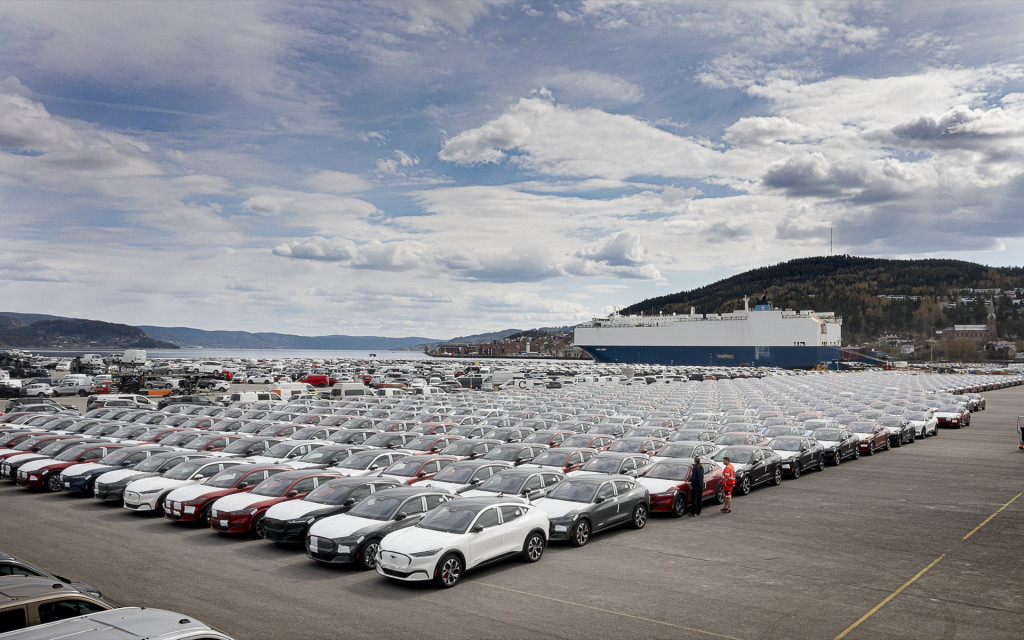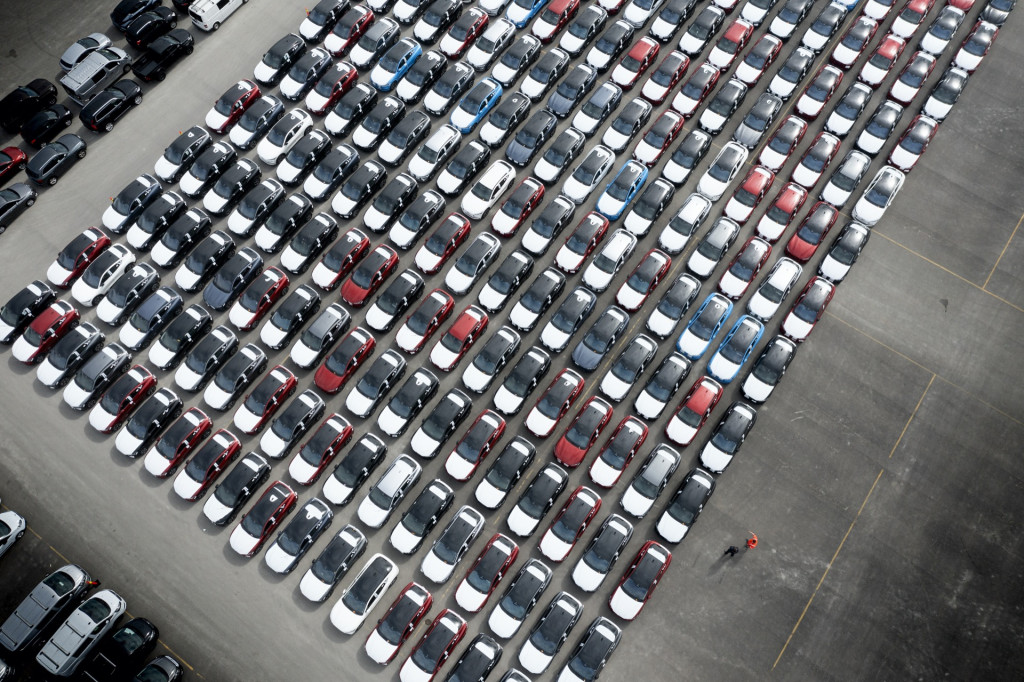EVs have surpassed at least 5% of new car sales in 23 countries, according to a new Bloomberg report.
Much of that sales growth has happened in the past year, according to the report. Five more countries have 5% EV sales—which Bloomberg analysts consider a tipping point for mass adoption—than a year ago. And median EV sales were up 55% last quarter compared to the same period a year ago, the report said.

Ford Mustang Mach-E at Port of Drammen, Norway
The newcomers—Canada, Australia, Spain, Thailand, and Hungary—join the U.S., China, and most of Western Europe. India, the third largest car market after China and the U.S., saw 3% EV sales in the last quarter, after doubling in just six months, Bloomberg noted. So it may be the next country to cross the threshold.
That 5% threshold is the point where EV sales will truly take off, Bloomberg predicts. This is based on the assumption that EVs will follow the same S-shaped adoption curve of other technologies like televisions and mobile phones. In this scenario, adoption initially proceeds at a slow pace, spikes, and then slows down again as the market nears saturation. That seems to be the case in Norway, which led the world in EV adoption and has reached 80% EV sales, but where sales growth now appears to be slowing.

Ford Mustang Mach-E at Port of Drammen, Norway
The U.S. reached the 5% threshold in 2021, fairly late for a country with so much spending power. EV adoption varies by region in the U.S., lagging in the heartland but surging in a handful of states, led by California. EV sales cracked 15% of the vehicle market in California last year.
In the U.S., cost is a critical barrier—especially as EVs continue to go upmarket and with larger battery packs and longer range. Any sales growth also requires an exponentially larger growth in public charging, due to a number of factors. As Bloomberg notes, the Biden administration has targeted EV adoption with funding for charging infrastructure and a rebooted EV tax credit, but those efforts likely won't be sustained by a potential future Republican administration.












